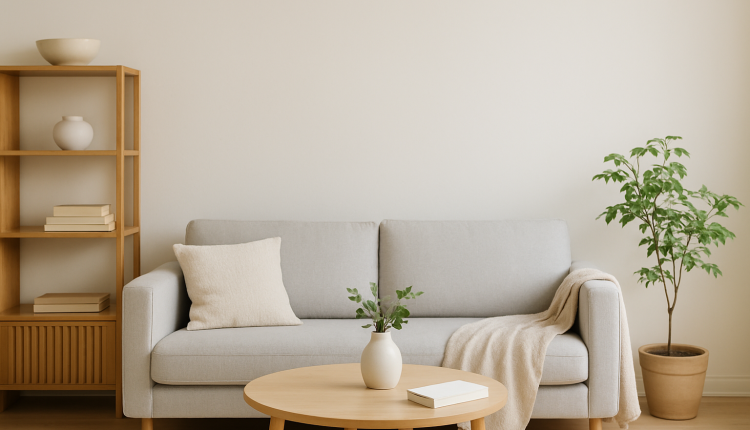The Psychology of Minimalism: How Decluttering Reduces Stress at Home
In today’s fast-paced world, homes often become overfilled with items we don’t truly need. Clothes pile up in closets, gadgets clutter countertops, and sentimental objects gather dust on shelves. While many people view clutter as a harmless byproduct of modern life, research in psychology suggests that an overly crowded environment can have a profound effect on mental well-being. Minimalism, as both a lifestyle and a philosophy, proposes an alternative: living with less in order to experience more peace, clarity, and balance.
Clutter and the Human Mind
The human brain thrives in environments that promote order and predictability. Clutter, however, introduces visual chaos and sensory overload. Studies in environmental psychology have shown that messy spaces increase levels of cortisol, the primary stress hormone. This means that even when we are not consciously aware of it, piles of unorganized belongings can subtly elevate stress levels and diminish our ability to relax.
Clutter also fragments attention. When multiple objects compete for visual and cognitive space, it becomes harder to concentrate, make decisions, and even rest. This is why many people feel an immediate sense of relief when they tidy a room—the removal of excess reduces distractions, allowing the mind to regain clarity.
Minimalism as a Psychological Reset
Minimalism does not mean living in empty rooms or discarding everything of value. Instead, it emphasizes intentional living—keeping items that serve a purpose or bring genuine joy while letting go of the rest. By stripping away excess, minimalism creates space not only in the home but also in the mind.
This approach functions as a psychological reset. When we consciously choose what stays in our environment, we reclaim a sense of control. This empowerment can counter feelings of overwhelm and helplessness that often accompany cluttered surroundings. Minimalism also encourages mindfulness, as each belonging is chosen with care rather than accumulated mindlessly.
The Link Between Space and Emotional Health
The home is more than just a physical shelter; it is a reflection of inner states. A cluttered home often mirrors unresolved emotions, delayed decisions, or unacknowledged attachments. Conversely, a minimalist environment reflects intentional choices and promotes emotional stability.
Open spaces, clean surfaces, and organized storage foster a sense of calm. Just as nature restores the mind with its simplicity and order, minimalist homes provide a sanctuary where overstimulation is reduced. For individuals struggling with anxiety or depression, creating such spaces can be particularly therapeutic, as it limits unnecessary triggers and fosters a sense of serenity.
Decluttering as a Stress-Relief Practice
Decluttering is not only about creating a cleaner home but also about reducing mental burdens. Each object we own carries a form of responsibility—whether it is the obligation to maintain it, store it, or eventually dispose of it. Too many objects can create a subconscious weight.
When we declutter, we lighten this load. The process itself can even be meditative: sorting, discarding, and organizing gives the mind a structured activity that produces visible results. Many people describe a sense of emotional release when letting go of items tied to past experiences, as if creating space for new opportunities.
Minimalism and Decision Fatigue
Another psychological benefit of minimalism lies in reducing decision fatigue. Every day, people make countless small choices—what to wear, what to cook, where to store things. An excess of belongings amplifies these decisions, leading to cognitive exhaustion.
Minimalist living simplifies routines. A streamlined wardrobe makes dressing effortless, a tidy kitchen makes cooking less stressful, and uncluttered rooms reduce the mental effort of navigating daily life. By eliminating unnecessary choices, minimalism frees up mental energy for meaningful activities and deeper thinking.
Relationships and Social Benefits
Clutter can also affect relationships. Disorganized spaces often lead to conflicts between family members, especially when household responsibilities feel overwhelming. Minimalism reduces these points of tension by making cleaning and organizing simpler.
Furthermore, a minimalist home fosters stronger social connections. Guests often describe minimalist spaces as welcoming, calming, and refreshing. Instead of feeling cramped or distracted, they can fully engage with the people they are visiting. Families, too, often find that less clutter encourages more quality time together, as shared spaces become functional and peaceful.
The Long-Term Mental Impact
Minimalism is not a one-time act but an ongoing practice. Over time, it cultivates habits of mindfulness and intentionality that extend beyond the home. People who embrace minimalism often find themselves more aware of their spending habits, more selective with commitments, and more focused on personal growth.
Psychologically, this translates into resilience. By learning to let go of unnecessary possessions, individuals also learn to release unhelpful thoughts and anxieties. The act of decluttering becomes symbolic of emotional cleansing, reinforcing a mindset of balance and simplicity.
Conclusion
Minimalism is far more than an aesthetic trend—it is a psychological tool for reducing stress and fostering well-being. By decluttering, we create environments that align with our mental needs: spaces of calm, clarity, and intention. In a world that constantly encourages accumulation, choosing less can be an act of empowerment.
The psychology of minimalism reveals that the true value of a home lies not in how much it holds but in how it supports the people who live within it. By embracing simplicity, we not only transform our physical surroundings but also cultivate inner peace, resilience, and joy.

